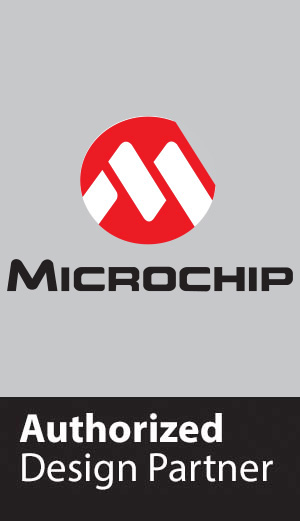Acqua technical documentation Buy
Compiling Linux Kernel 4.19.x LTS for Acqua
Prerequisite
A Linux PC in required to cross compile the Kernel image.
This procedure has been tested on:
- Ubuntu 18.04.4 LTS (amd64)
- Debian Buster 10 (amd64)
Using an Intel PC is required to install these packages
It is advisable to have a Debug Port Interface like DPI or USB-3V-SER to check the error messages during the kernel bootstrap
Step-by-step Kernel cross-compilation procedure:
Here we will illustrate how to compile the source available on the Microchip website site and repository:
Open a terminal on your Linux PC and download the Linux Kernel sources from the main stream repository:
wget https://github.com/linux4sam/linux-at91/archive/linux-4.19-at91.zip
Extract the Kernel sources from the compressed file by typing:
unzip linux-4.19-at91.zip
Move inside the new folder:
cd linux-at91-linux-4.19-at91
Create with git a new branch of Linux Kernel sources called acme to keep a trace of any changes from the Kernel mainline.
Install git on your PC:
sudo apt update
sudo apt install git
Create a local git repository and the new branch acme:
git init; git add .; git commit -m "linux-4.19-at91"; git branch acme; git checkout acme
Download the Acme Systems patch for this Kernel version. It add just the Acme boards defconfig, device trees and small few bug fixes:
wget https://raw.githubusercontent.com/AcmeSystems/acmepatches/master/linux-4.19.x.patch
and apply it by typing:
patch -p1 < linux-4.19.x.patch
Set the defconfig:
make ARCH=arm CROSS_COMPILE=arm-linux-gnueabihf- acme-acqua_defconfig
Customize the default Linux Kernel configuration:
If you need to customize the Kernel configuration or you just want to take a look around the Kernel setup type:
make ARCH=arm menuconfig
and navigate inside the Kernel configuration using the arrow keys and following the help provided by the menuconfig interface.
Create a defconfig of your own Kernel configuration
make ARCH=arm savedefconfig
The file defconfig contains your configuration. You could rename and copy it in arch/arm/configs/
cp defconfig arch/arm/configs/my_defconfig
Generate the Device Tree Blob file (.dtb)
Now compile the device tree file requested by your board by selecting one of the following commands:
make ARCH=arm CROSS_COMPILE=arm-linux-gnueabihf- acme-acqua.dtb
Compile the Kernel image
Compile the Linux Kernel sources and generate the binary compressed image file to save in the first partition of microSD card.
make -j8 ARCH=arm CROSS_COMPILE=arm-linux-gnueabihf- zImage
...
Image arch/arm/boot/zImage is ready
Compile the Kernel modules
The image generated contains the Linux Kernel and all the built-in device drivers (option [*] in menuconfig) compiled with it.
Al the drivers compiled as external modules (option [M] in menuconfig)
need to be compiled and saved in the rootfs /lib directory on the second
partition of the microSD. We didn't use any [M] flag in our defconfig so this procedure
is not requested but. in case you add something. these are the commands to use
to compile them:
make modules -j8 ARCH=arm CROSS_COMPILE=arm-linux-gnueabihf-
make modules_install INSTALL_MOD_PATH=./modules ARCH=arm
Copy the boot files into the first microSD partition
Insert a formatted microSD with the boot loader (at91bootstrap) and the rootfs contents already created in your Linux PC and copy on it these files:
Write the Linux Kernel image and the device tree blob in the first microSD partition:
sudo cp arch/arm/boot/zImage /media/$USER/boot
sudo cp arch/arm/boot/dts/acme-acqua.dtb /media/$USER/boot/at91-sama5d3_acqua.dtb
Write the Linux Kernel modules inside the second microSD partition:
sudo rsync -avc modules/lib/. /media/$USER/rootfs/lib/.
After the first boot
At the first access to the board command line update the module dependencies by typing this command:
depmod -a
Usefull commands
If you want to create a patch with the changes you have made on the vanilla Linux kernel use these commands:
git checkout acme
git diff master > acme.patch
To revert a patch applied type:
patch -p1 -R < ../acme.patch
Links

Systems designer, webmaster of www.acmesystems.it and founder of Acme Systems srl
Personal email: tanzilli@acmesystems.it
Web pages: https://www.acmesystems.it --- https://www.acmestudio.it
Github repositories: https://github.com/tanzilli --- https://github.com/acmesystems
Telegram group dedicated to the Acme Systems boards: https://t.me/acmesystemssrl





